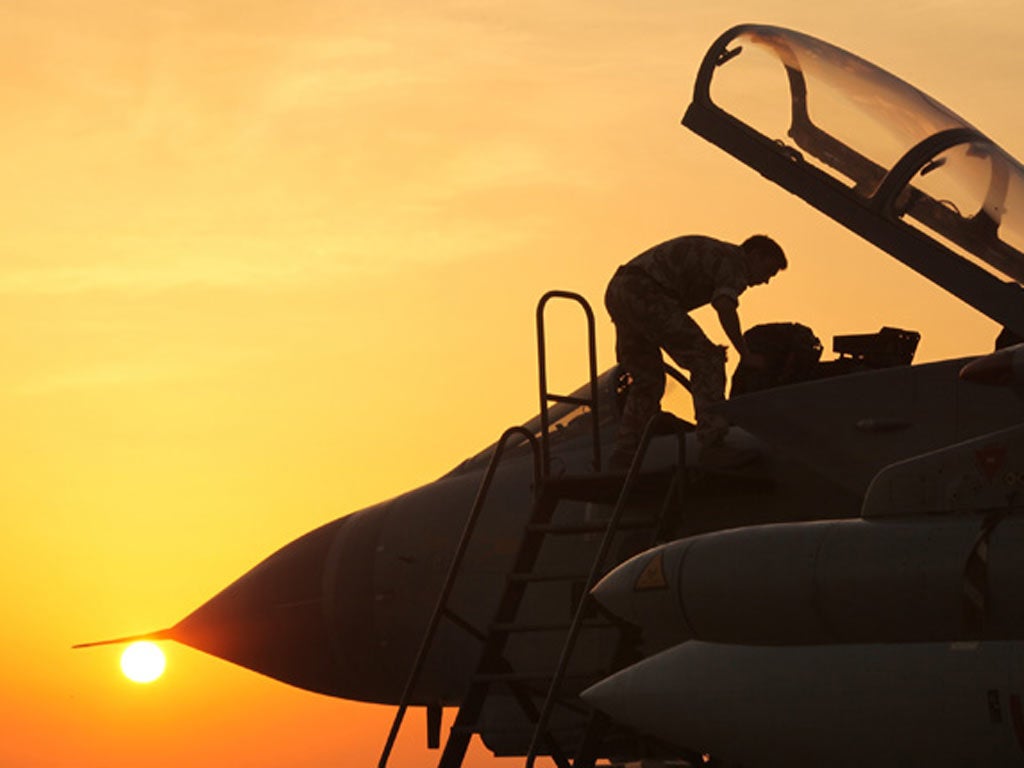UN votes to end Libya operations

Your support helps us to tell the story
From reproductive rights to climate change to Big Tech, The Independent is on the ground when the story is developing. Whether it's investigating the financials of Elon Musk's pro-Trump PAC or producing our latest documentary, 'The A Word', which shines a light on the American women fighting for reproductive rights, we know how important it is to parse out the facts from the messaging.
At such a critical moment in US history, we need reporters on the ground. Your donation allows us to keep sending journalists to speak to both sides of the story.
The Independent is trusted by Americans across the entire political spectrum. And unlike many other quality news outlets, we choose not to lock Americans out of our reporting and analysis with paywalls. We believe quality journalism should be available to everyone, paid for by those who can afford it.
Your support makes all the difference.The UN Security Council voted unanimously today to lift the no-fly zone over Libya on October 31 and end its authorisation of military action to protect civilians.
The council authorised the actions on March 17 in response to an Arab League request to try to halt Muammar Gaddafi's military, which was advancing against rebels and their civilian supporters.
The Nato bombing campaign that followed was critical in helping the rebels oust the Libyan leader from power in August.
The council adopted the resolution a day after Libya's deputy UN Ambassador Ibrahim Dabbashi asked members to wait until the transitional government made an official request, which he hoped would come by October 31.
But the UN's most powerful body decided that there was no need for UN-authorised military action following the death of Gaddafi on October 20 and the transitional government's announcement of the country's liberation on October 23.
Last week, Nato announced preliminary plans to phase out its mission on October 31. But the alliance unexpectedly postponed a decision on Wednesday, saying Nato Secretary-General Anders Fogh Rasmussen needed to continue consultations with the United Nations and Libya's National Transitional Council.
The resolution ends the UN authorisation for military action just before midnight on October 31, which means that Libya will regain control of its airspace and all military operations effective November 1.
Russia's UN Ambassador Vitaly Churkin had called for an end to military operations on October 31 and welcomed the council's action - as did the ambassadors of United States, Britain, France, Germany, South Africa and other council nations.
AP
Join our commenting forum
Join thought-provoking conversations, follow other Independent readers and see their replies
Comments